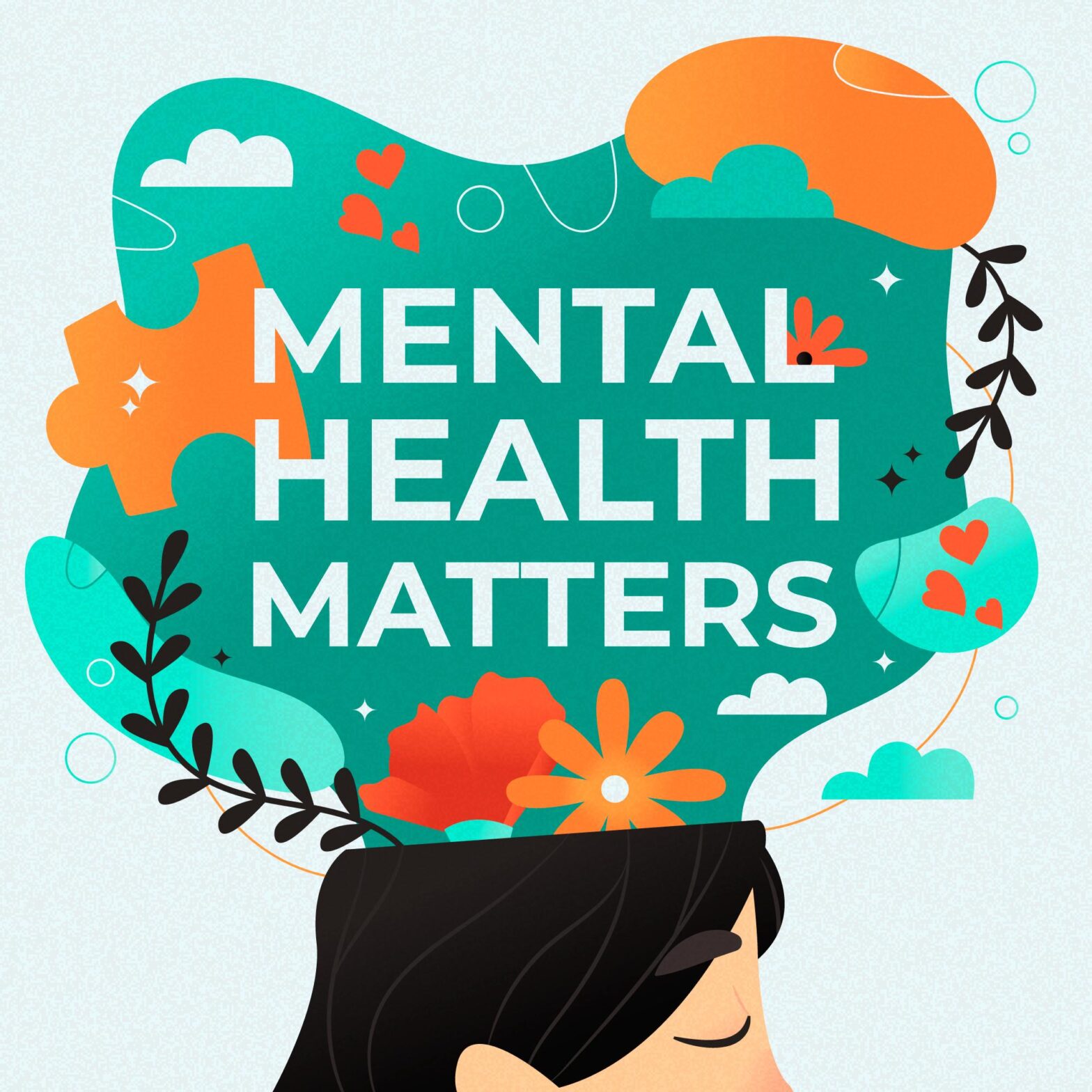In the hustle and bustle of daily life, it’s easy to underestimate the profound connection between what we eat and how we feel. We often associate nutrition with physical health, forgetting that our mental well-being is equally influenced by the foods we consume. But did you know there is a connection between food, nutrition, and mental health? And there is a big connection between mental health and nutrition.
Before we go deep into this topic, one must understand how big of a problem we are tackling when we talk about mental health.
One must know that failing to pay enough attention to one’s mental health can turn out to be a disastrous mistake. Sadly, this seems to be the case everywhere in the world. Just think about this figure- according to the Logical Indian, India has one of the highest rates of mental illness in the world, with approximately 56 million Indians suffering from depression and 38 million suffering from anxiety disorders. This figure clearly shows how big of a problem this is for countless individuals.
For the same reason, it is not surprising to find people looking for multiple tips to improve mental health. However, improving the nutrition quotient in the body is one of the first tips you should focus on.
This post delves into the fascinating interplay between nutrition and mental health. Moreover, it sheds light on how the choices we make at the dinner table can significantly impact our mood, emotions, and overall mental state. Let’s get started by learning about the science behind food and mood.
The Science Behind Food and Mood
We must first delve into the science behind the intricate relationship between nutrition and mental health. Our gastrointestinal tract, often referred to as the “second brain,” plays a pivotal role. This intricate system, home to billions of bacteria, continuously communicates with our brain through the production of chemical substances. Two key players in this dialogue are dopamine and serotonin.
Dopamine, often called the “feel-good” neurotransmitter, is responsible for pleasure and reward sensations. Contrarily, serotonin is helpful for mood, eating, appetite, and sleep. The food we consume significantly influences the production of these chemicals. When we opt for nutritionally dense foods, we promote the growth of “good” bacteria in our gut, which, in turn, positively affects the production of these mood-regulating chemicals. If you want to know more about dopamine and Serotonin, I suggest you read this blog published on the website of Medical NewsToday.
However, not all food choices are created equal. Sugar, in particular, is considered a major culprit for inflammation in the body. While it may provide a temporary spike in dopamine, it ultimately leads to a hard crash. A clean diet consisting of whole, unprocessed foods can help alleviate symptoms of depression and anxiety. In contrast, unhealthy diets have been linked to an increased risk of dementia and stroke.
Foods That Help Support Mental Health
So, what should you load into your shopping cart and put on your plate to support your mental health? Let’s take a closer look at some key categories of foods that have been shown to have a positive impact:
- Whole Foods: The advice is simple: eat real food. Opt for minimally processed foods with a few healthy ingredients. Fresh fruits and vegetables in a variety of colors are excellent choices. The colorful produce offers myriad benefits for both body and mind, with nutritional properties often contained in the colors themselves.
- Fiber: Plant-based foods are rich in fiber, which helps the body absorb glucose (food sugars) slowly, avoiding the dreaded sugar rushes and crashes. Incorporate fruits, vegetables, and nutrient-filled carbs like whole grains and beans into your diet.
- Antioxidants: These inflammation fighters are abundant in berries, leafy green vegetables, turmeric, and Omega-3 fatty acid-rich foods like salmon and chia seeds. Even dark chocolate, in moderation, contains antioxidants—a delightful indulgence for your taste buds and mood.
- Folate: A type of B vitamin, folate plays a role in dopamine production without causing the surges associated with sugar. You can find it in leafy greens, lentils, and cantaloupes.
- Vitamin D: Known for its role in serotonin production, vitamin D is often obtained from sunlight. However, mushrooms are an excellent dietary source. If you’re deficient, consider supplements, and check your plan’s benefits for possible discounts.
- Magnesium: This essential mineral contributes to nerve and muscle function and helps maintain a steady heartbeat. It’s also vital for the food-mood connection. A deficiency can adversely affect gut bacteria and lead to symptoms of depression and anxiety. Load up on natural sources such as cacao nibs, almonds, spinach, bananas, and beans.
- Fermented Foods: Packed with probiotics, these live bacteria are beneficial for your digestive tract. Examples include sauerkraut, kimchi, miso, tempeh, and kombucha. If you have high blood pressure, consume them in moderation due to their high sodium content.
Practical Tips for a Mood-Boosting Diet
When getting to know more about nutrition and mental health, a mind-boosting diet is a crucial piece of information. However, Incorporating these good-for-your-mood foods into your diet may initially require some extra effort, and here are some practical tips to prepare them
- Prepare a week’s worth of chopped veggies and soaked or cooked beans in advance for convenient meal preparation.
- Experiment with frozen fruits and vegetables, and opt for quick-cooking grains like brown rice, quinoa, or whole-grain couscous when you’re short on time.
- Make healthy food swaps, like choosing whole-grain versions of rice, pasta, and bread.
- Opt for a side salad packed with nuts, seeds, and colorful vegetables instead of a bag of chips as a flavorful alternative.
However, it’s crucial to remember that general nutrition rules still apply. Staying hydrated, not skipping meals, and being mindful of caffeine and alcohol intake are essential components of a holistic approach to mental health through nutrition. Always consult with your healthcare provider regarding caffeine and alcohol consumption based on your personal health history and goals.
The Path to Lasting Transformation
As you embark on your journey to learn more about the connection between nutrition and mental health, it’s important to understand that lasting transformation doesn’t happen overnight and that the changes will occur at a slower pace. You don’t have to make all these dietary changes at once. Take it one step at a time, implementing a new substitution or addition each week.
Being present and mindful while eating is a powerful tool that can help combat cravings and overeating. Pay attention to how your food tastes, smells, and feels as you eat it. You should also pay attention to how you feel after consuming these nourishing snacks and meals. Many people transitioning to a mostly plant-based diet find their energy and focus steady throughout the day.
It may take days or weeks before you start to feel the mood-boosting effects of a better diet, depending on the number of changes you make. And do keep in mind that every person has a different journey toward their respective health goals. Discuss your dietary changes and goals with your healthcare provider to ensure they align with your individual needs and requirements.
Conclusion
This blog discusses the profound connection between mental health and nutrition. Nourishing our bodies with the right foods can positively influence our mood, emotions, and overall mental well-being. It’s a journey that requires patience and consistency, but the rewards are well worth the effort. As you make mindful choices in your diet, you’ll witness the transformation in your mind and your body. Start today and take that first step toward a happier, healthier you.
Orane, being one of the finest nutrition institute chains, is committed to helping individuals looking to gain and use knowledge to make a difference to many and, at the same time, build an excellent career in Nutrition In case you are someone who has a similar interest, do check out our nutrition courses.















